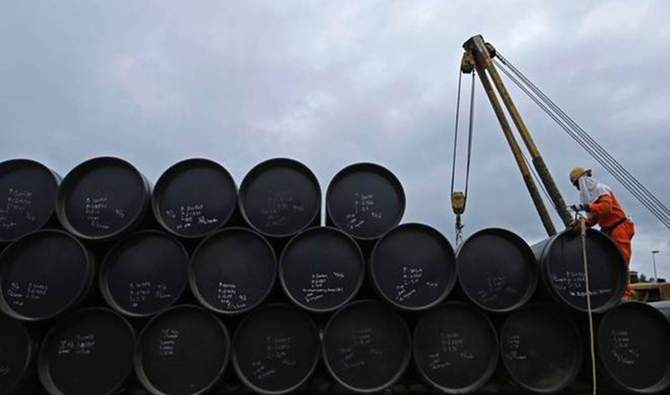
- ARAB NEWS
- 09 Jul 2025

Crude oil prices remained stable for the third month in a row with Brent crude moving in a tight range between $40 and $45 per barrel since early June.
Brent advanced to $44.80 per barrel by the end of the week as WTI also gained to $42.01 per barrel.
The big three global oil outlooks published by OPEC, the International Energy Agency and the US Energy Information Administration were all bearish and based on the view that demand may not recover to 2019 levels until 2022 at the earliest.
Transport fuels were seen as especially vulnerable with jet fuel and gasoline the hardest hit by pandemic-related lockdowns.
However OPEC’s latest monthly report suggests that global refining margins may be trending upwards back into positive territory, particularly in Asia.
In general, the sharp downturn in refined petroleum product prices was largely driven by an alarming growth in product inventory levels even as lockdowns eased worldwide.
The IEA reported the steepest downgrades for the second half of this year, driven largely be the continuing weak demand for jet fuel.
More positive signs of recovering demand in the US and Asia should have boosted prices much higher than they have but instead the market remains focused on persistent uncertainties about a continued rise in COVID-19 cases and the potential for a return of lockdowns in the winter.
The latest OECD data show that commercial oil stocks rose by 24.3 million barrels for the fourth consecutive month to 301.5 million barrels higher than a year earlier and 291.2 million barrels above the latest five-year average. Refined product inventories may remain elevated due to weak public transportation and air transport fuel demand. However the outlook may be more positive for heating oil and naphtha that receive some support from sectors less affected by the pandemic such as home heating and petrochemicals.